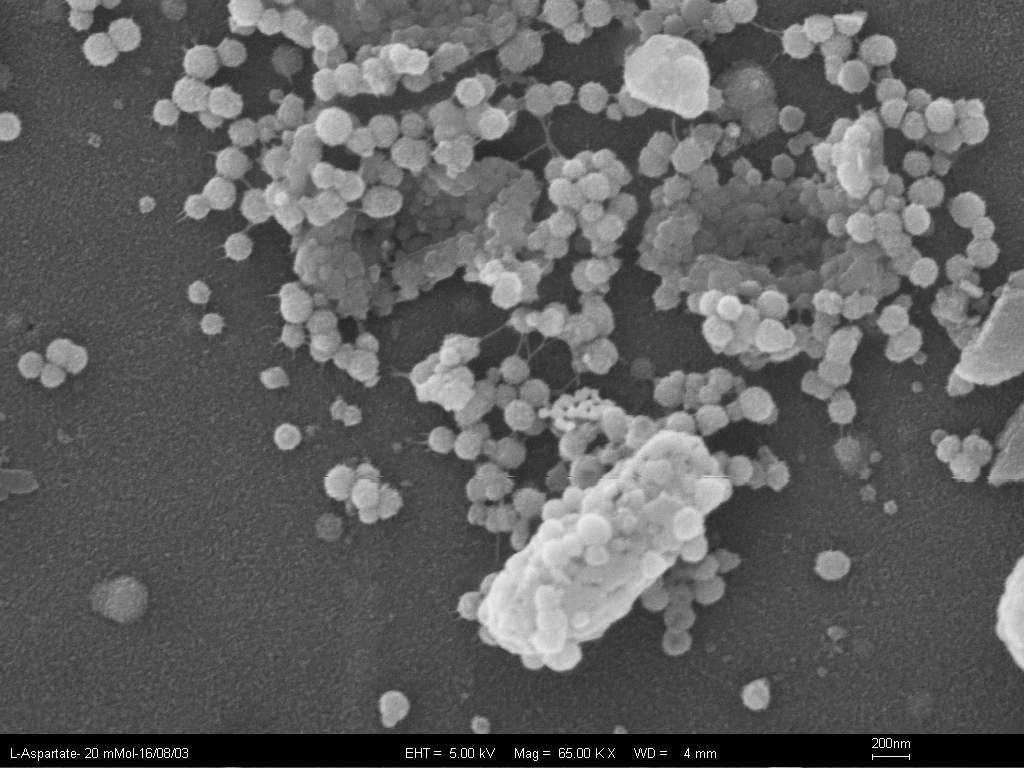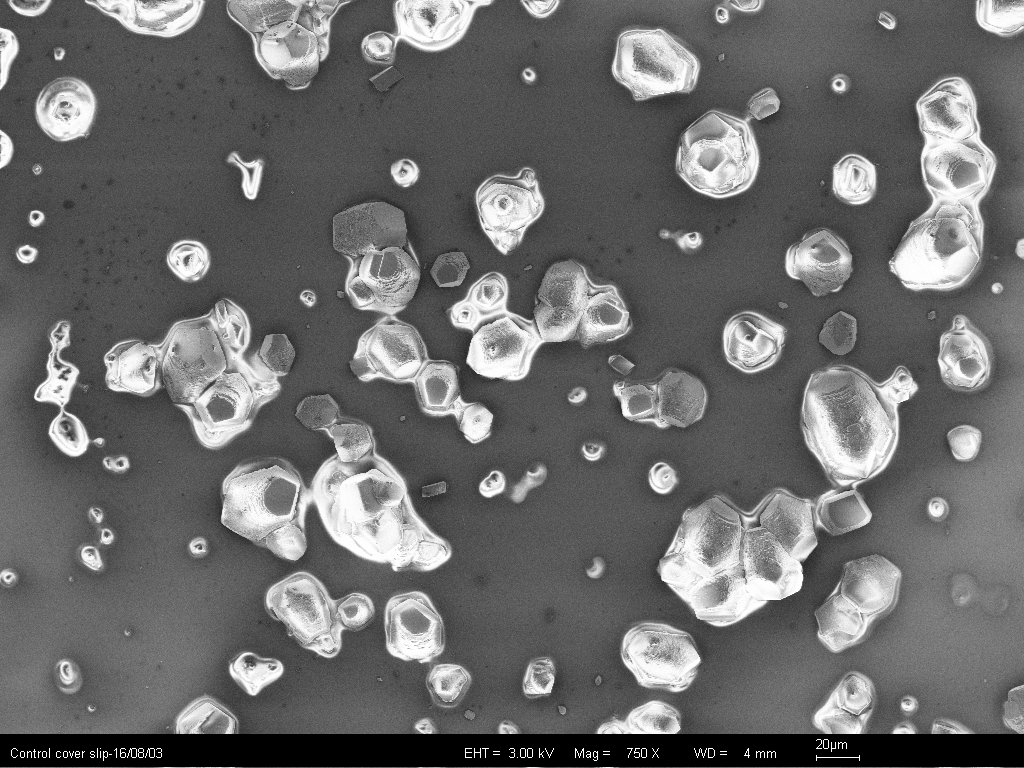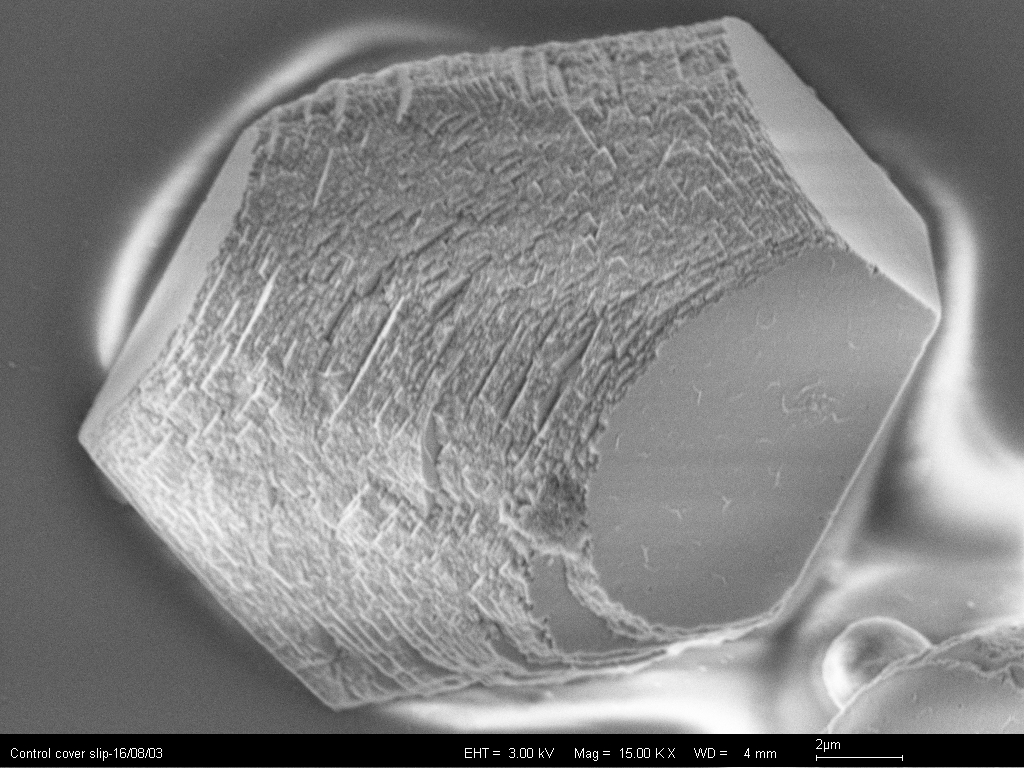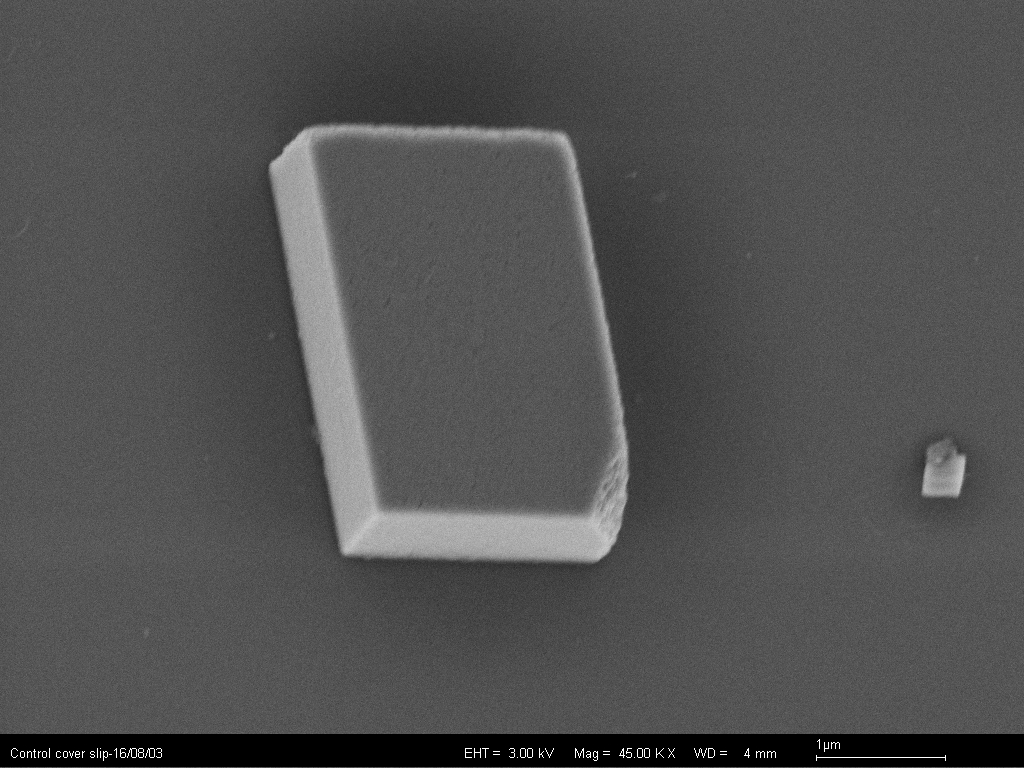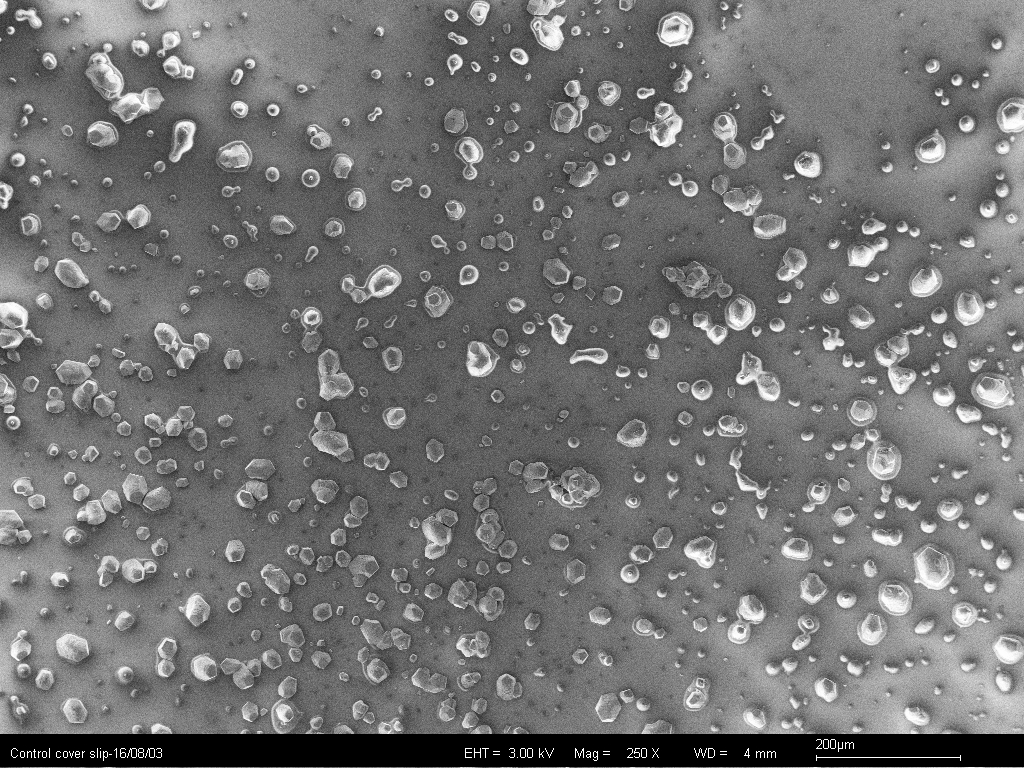Troll: slides pt # 3-
fully submerged
Control slide - submerged under water at pt # 3 for 24 h. Note that all X-tals are very well developed with perfect crystal faces; they also seem to have a homogenous shape with two main forms (mostly form as seen in Pict. 2 and some as seen in Pict. 3).
SAM - slide (gold and 30 mM 3-Mercapto-1-propane
sulfonic acid (sodium salt) = C3SO3-Na); at air water interface; predominat shapes and size ranges
are similar to the control (Figure 1+2 first line below slide with no SAM)
and that there seems no difference between Cc grown on the gold+SAM covered
part vs. the gold only covered slide (Pict # 3 first line).
Also note the preferential growth at the slide edge fro both the control
and the SAM slide (Fig 2 first line and 4 second line).
Notation on botom of figure 3 in this and the next
line of pictures is erroneous - should be C3SO3-Na_1
and C3SO3-Na_2 respectively.
(1) 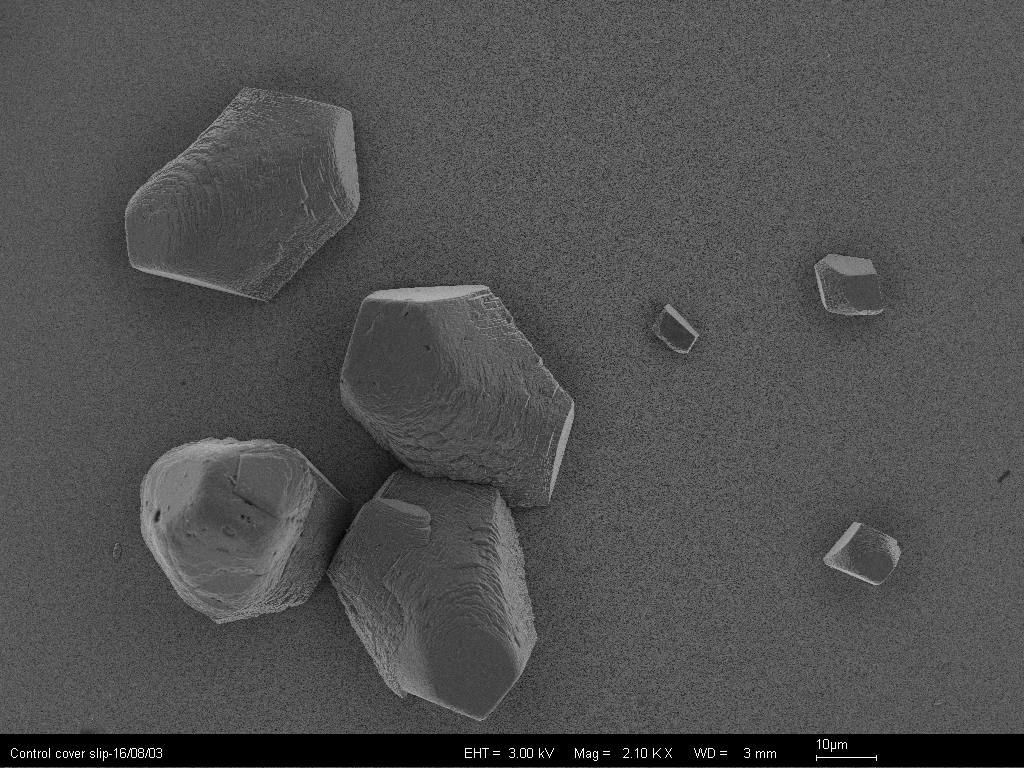 (2)
(2) 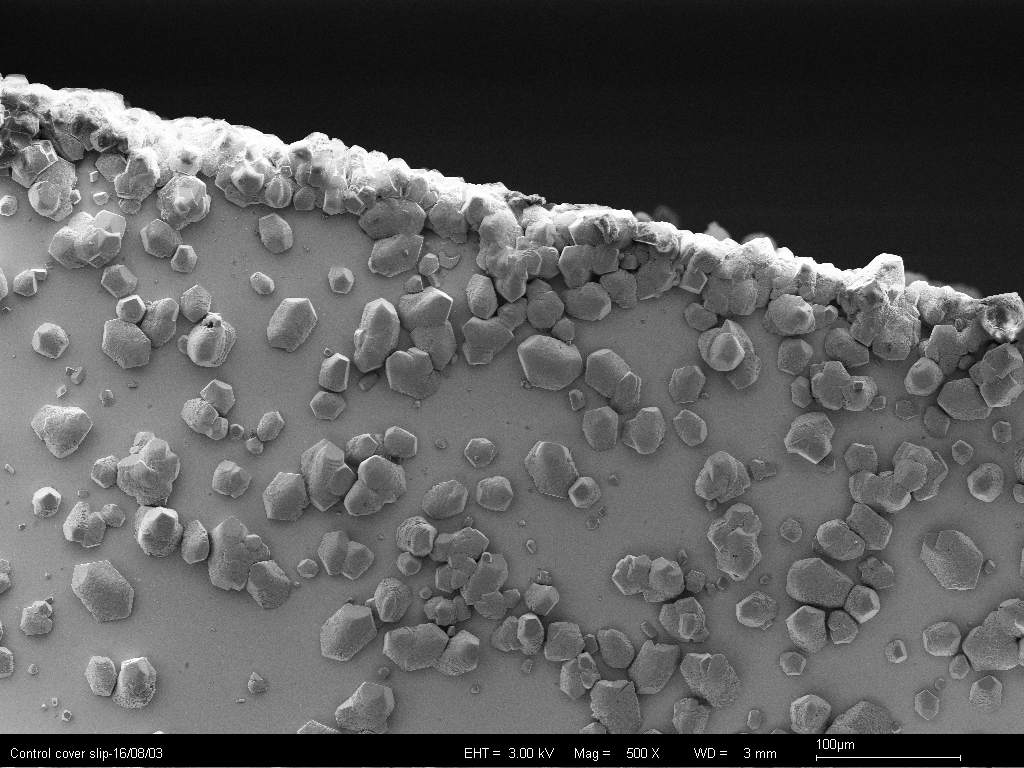 (3)
(3) 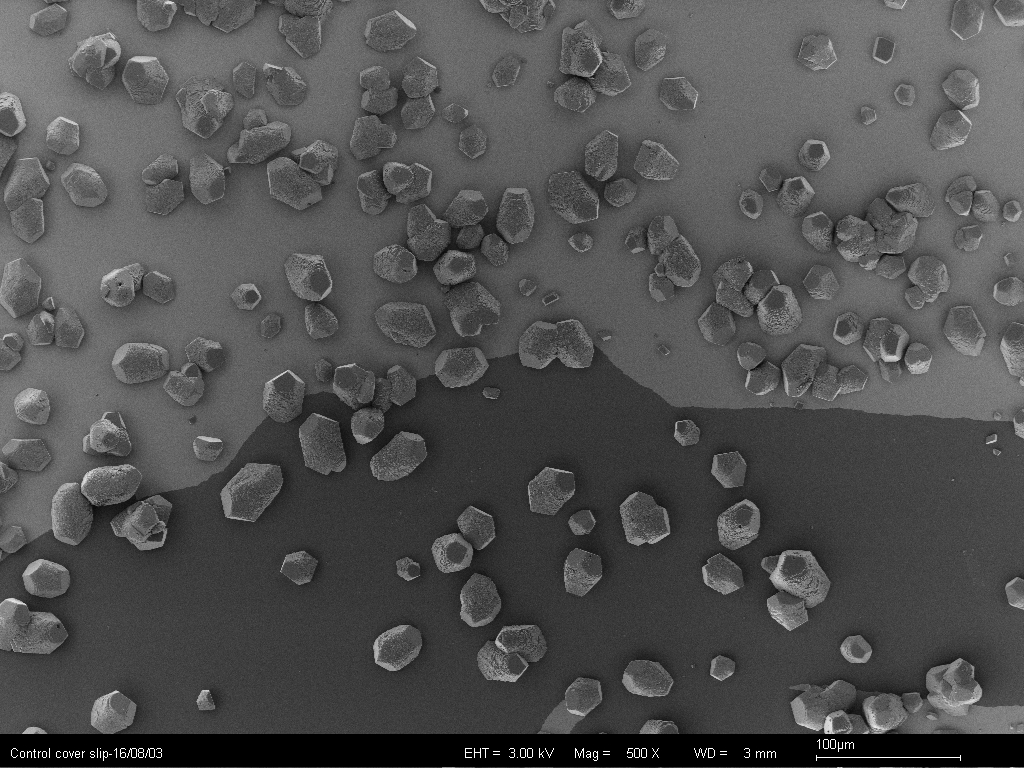
SAM - slide (gold and 30 mM C3SO3-Na); second slide:picttures 2 and 6 are details on the surface
of 1 and 5, showing the growth mechanism, while picture 3 is the interface
between the SAM on gold and the gold covered slide only.
(1) 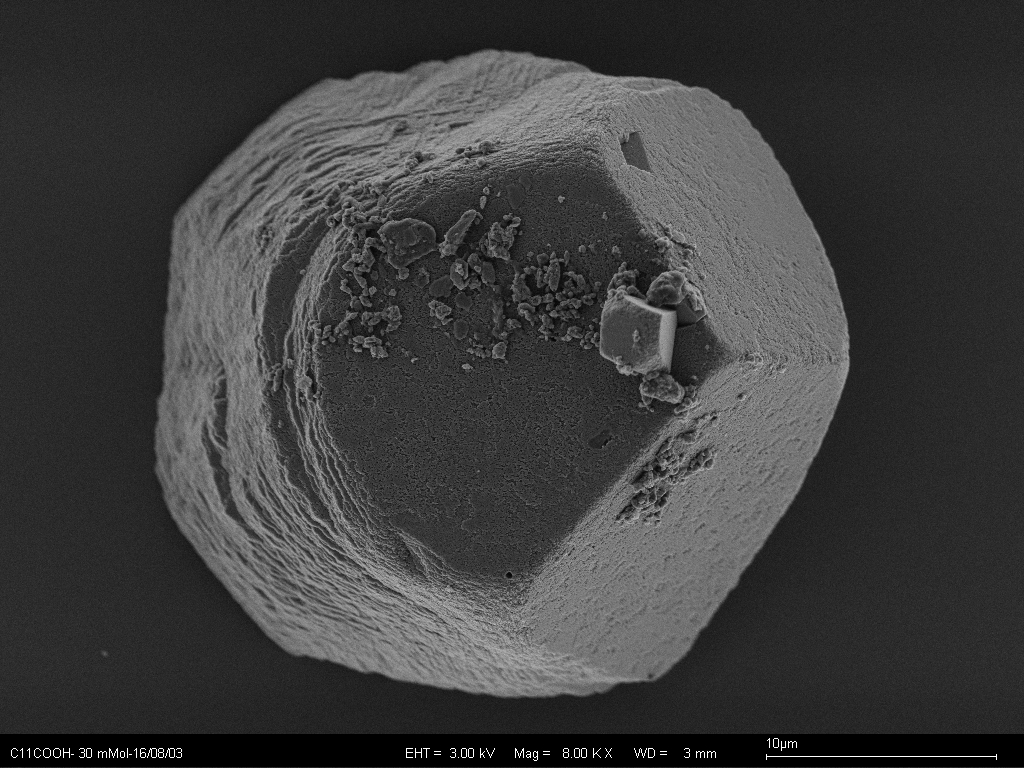 (2)
(2) 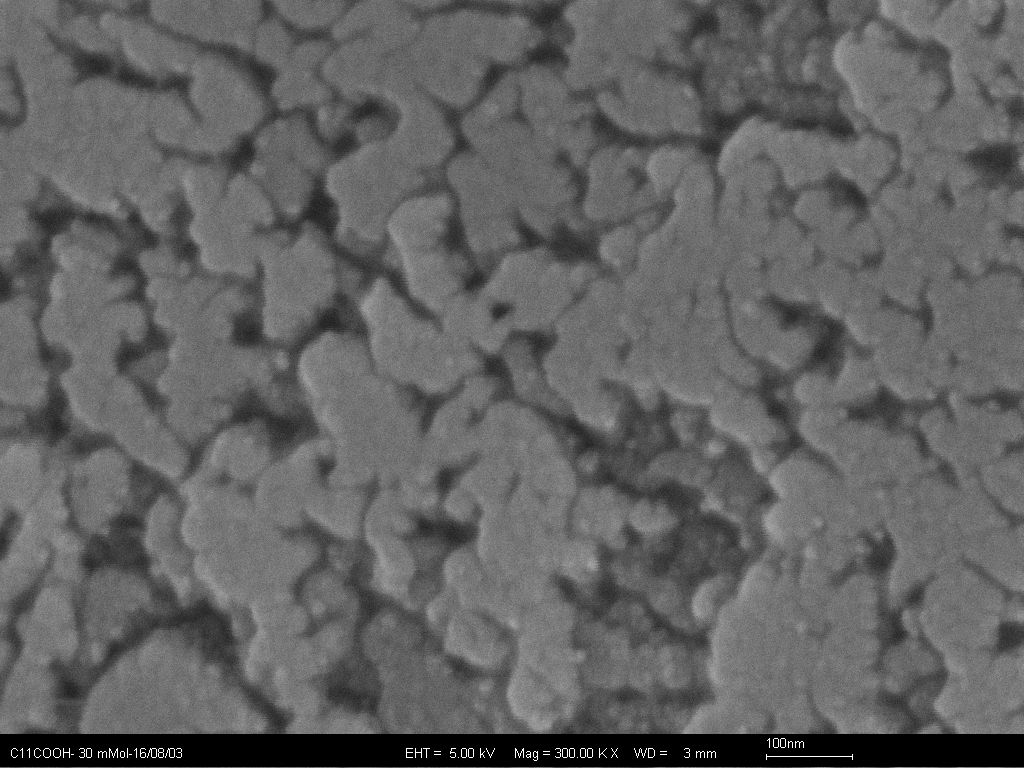 (3)
(3) 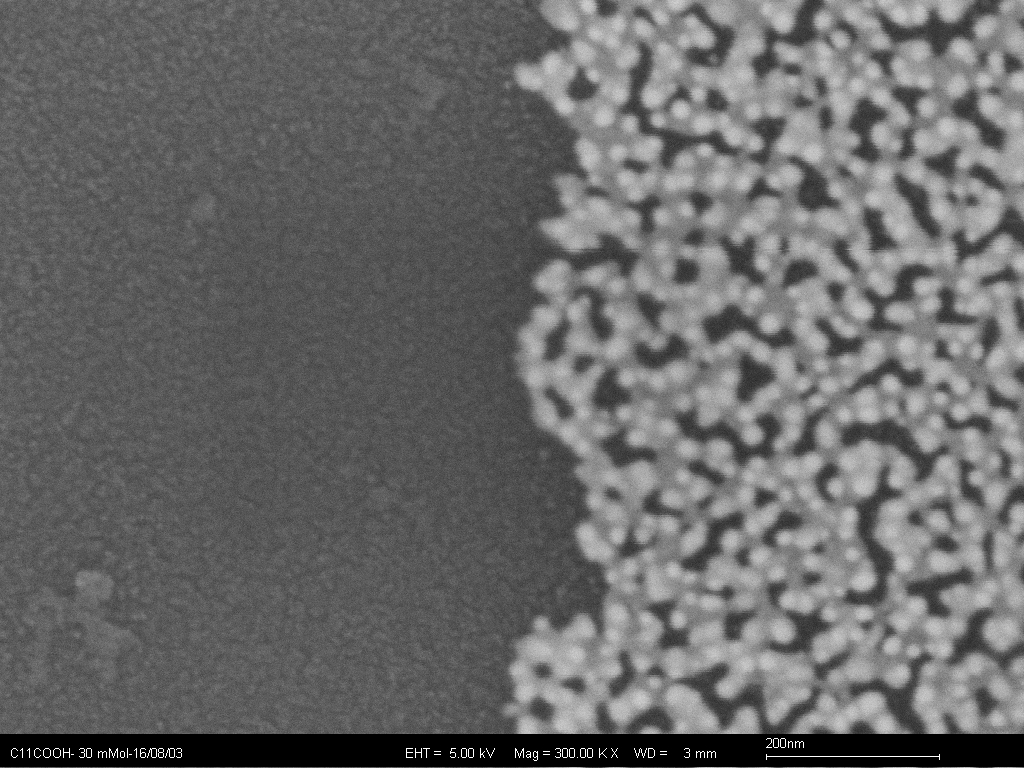 (4)
(4) 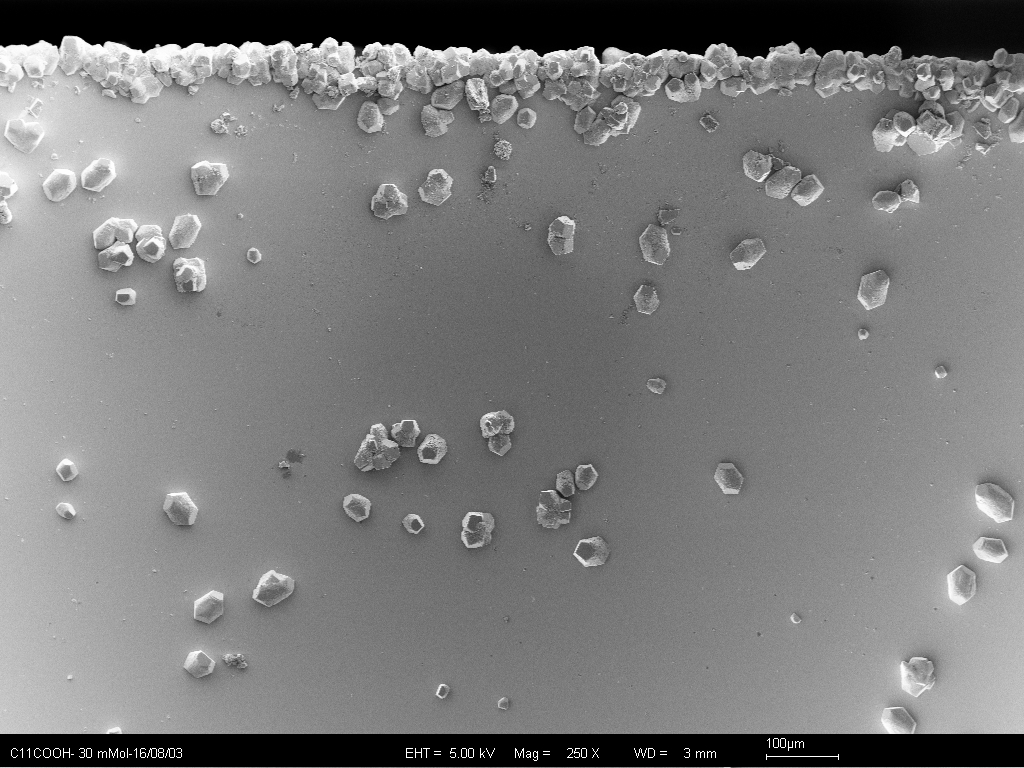 (5)
(5) 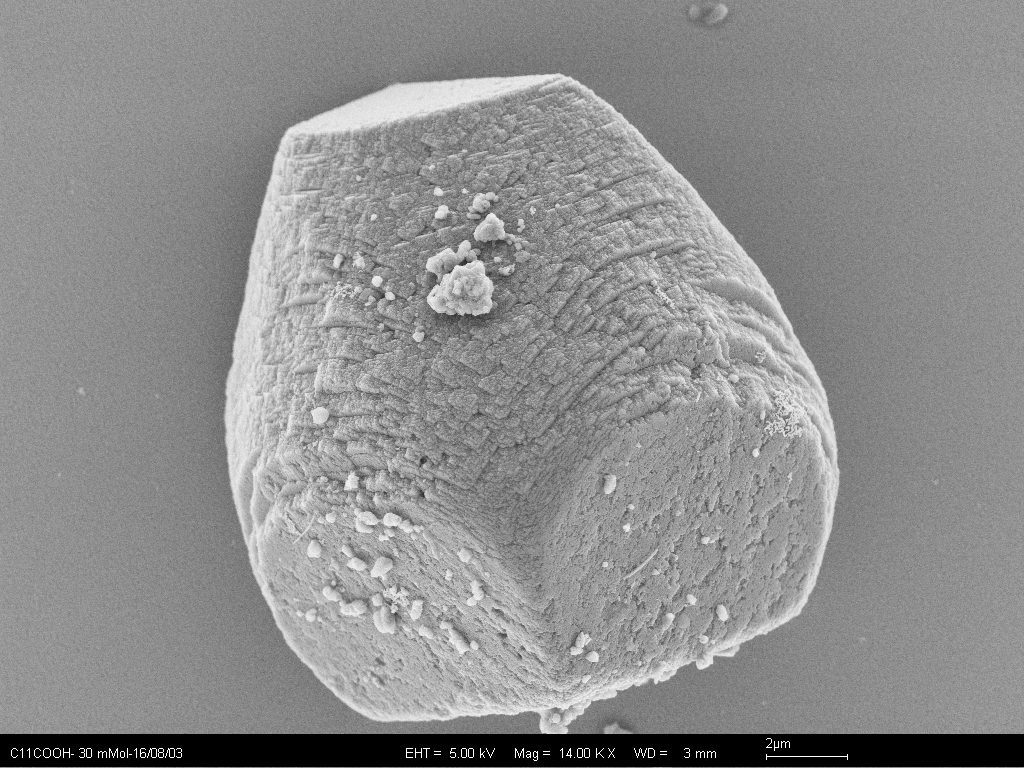 (6)
(6) 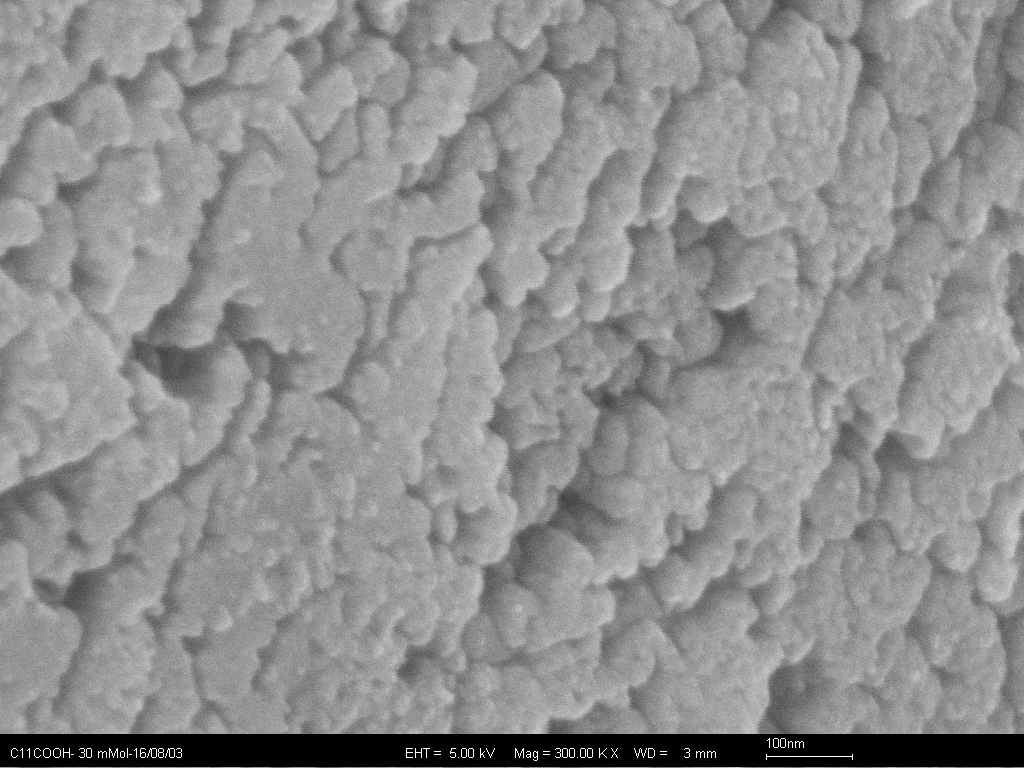 (7)
(7) 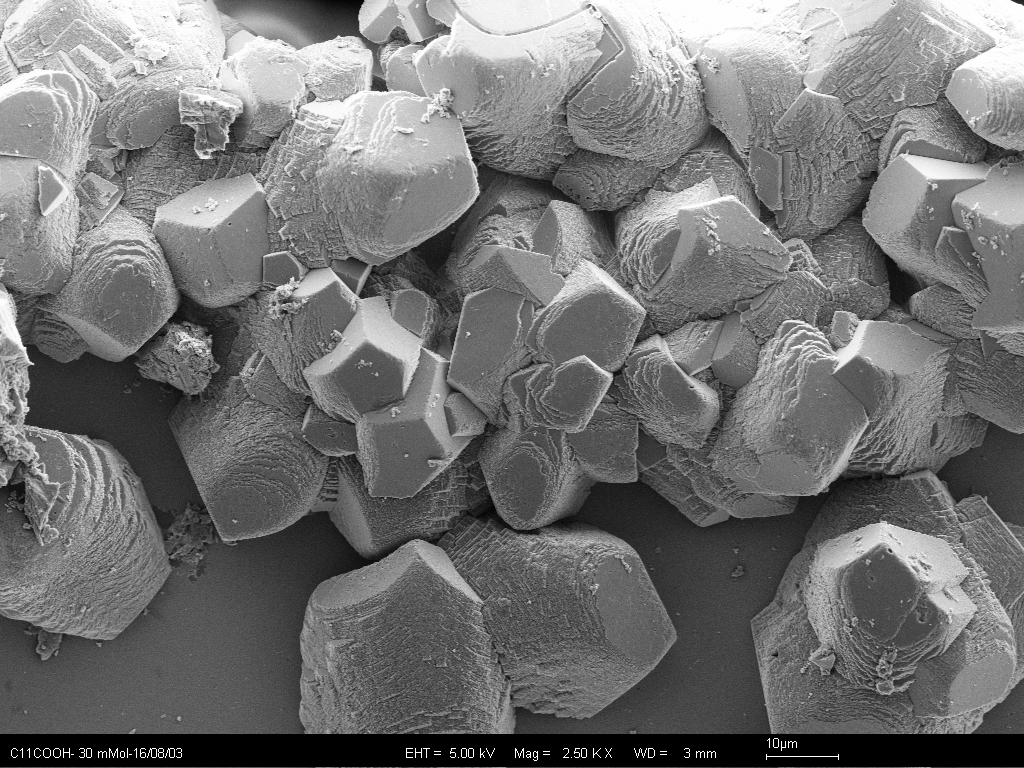
SAM - slide (gold and 20 mM L-Aspartic Acid);
The L-Aspartic Acid SAM induced the formation of Aragonite (+- Vaterite
!); however, on the whole slide and specifically also on the part of the
slide that was not covered by the SAM, calcites of shapes and sizes (20-50
µm) that are equivalent to the control slide nucleate. In addition,
the structures in pict's 6+7 show growth of small (< 200nm) spherical
particles that are cross-linked with the substrate and among each other.
The lath like or radial aragonite (1-5) and these spherical structures (6+7)
are much smaller than the calcites and thus, although the L-Aspartic Acid
induced their nucleation of these polymorphs, the main precipitate is still
calcite (not shown below).
(1) 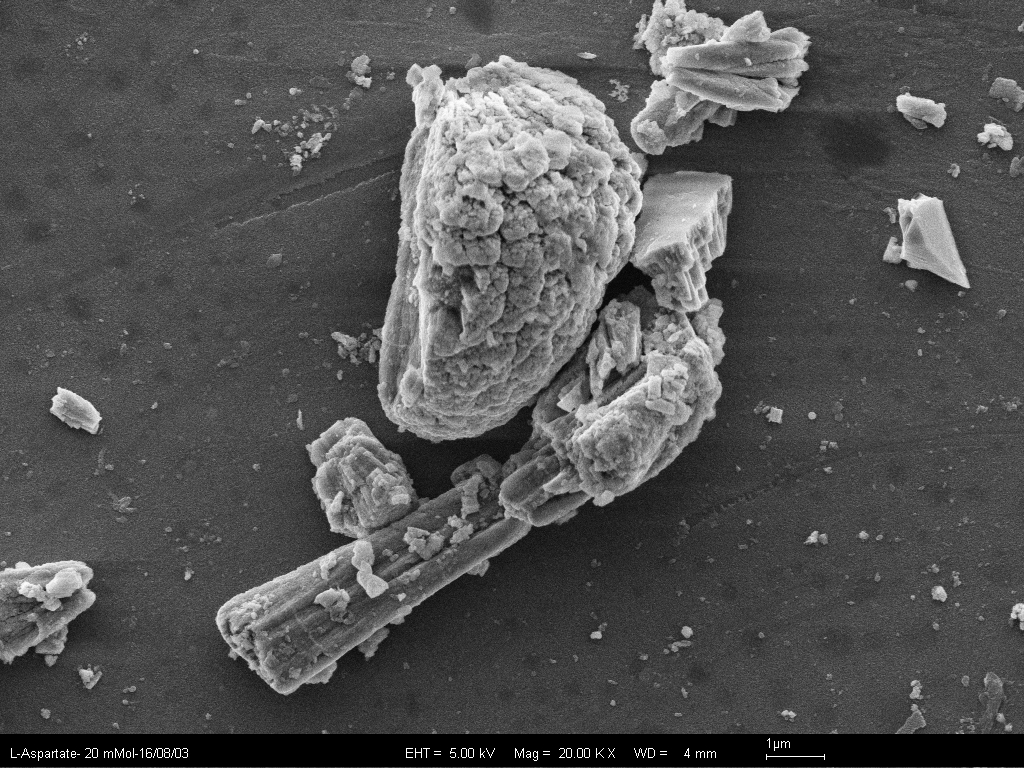 (2)
(2) 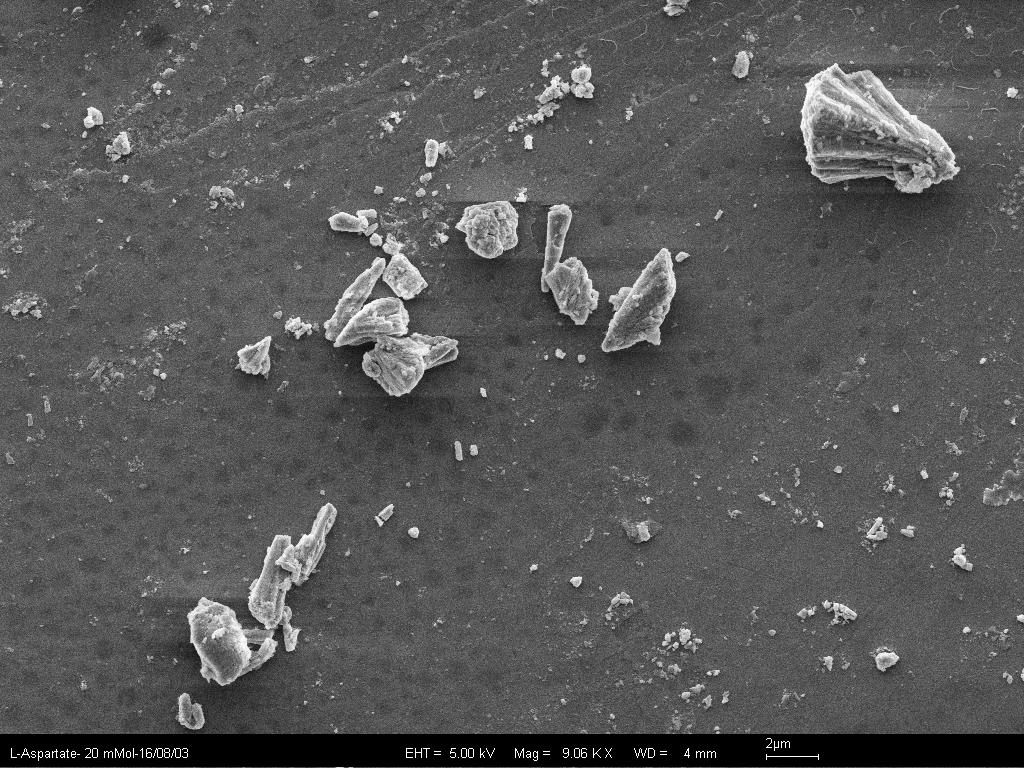 (3)
(3) 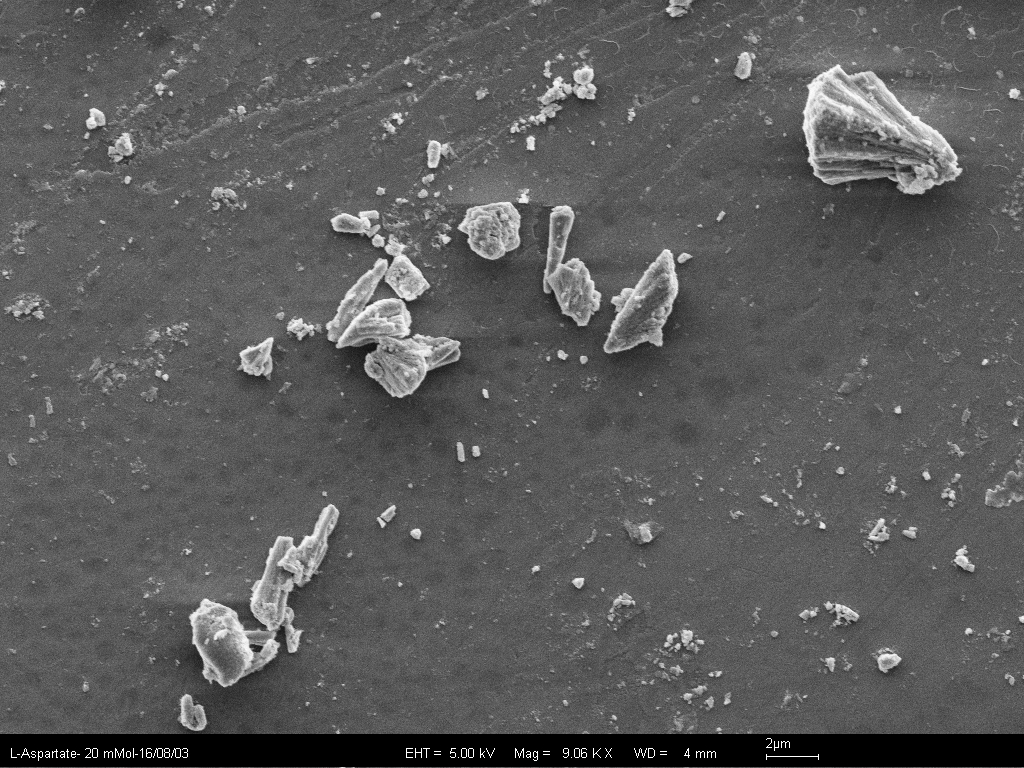 (4)
(4) 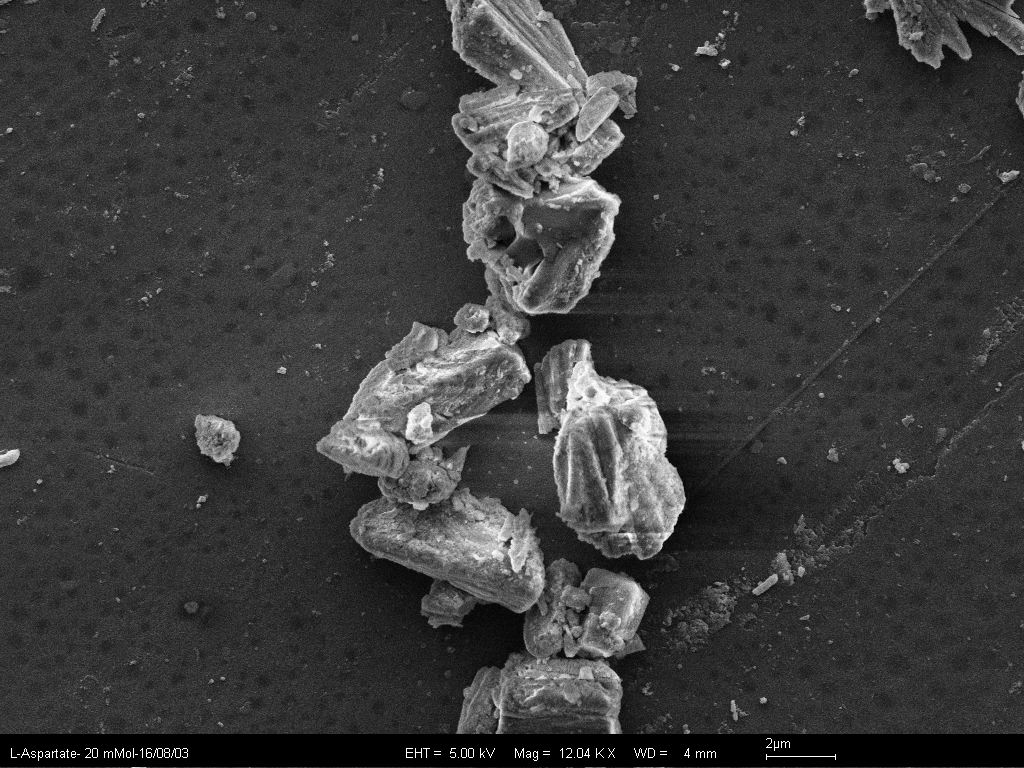 (5)
(5) 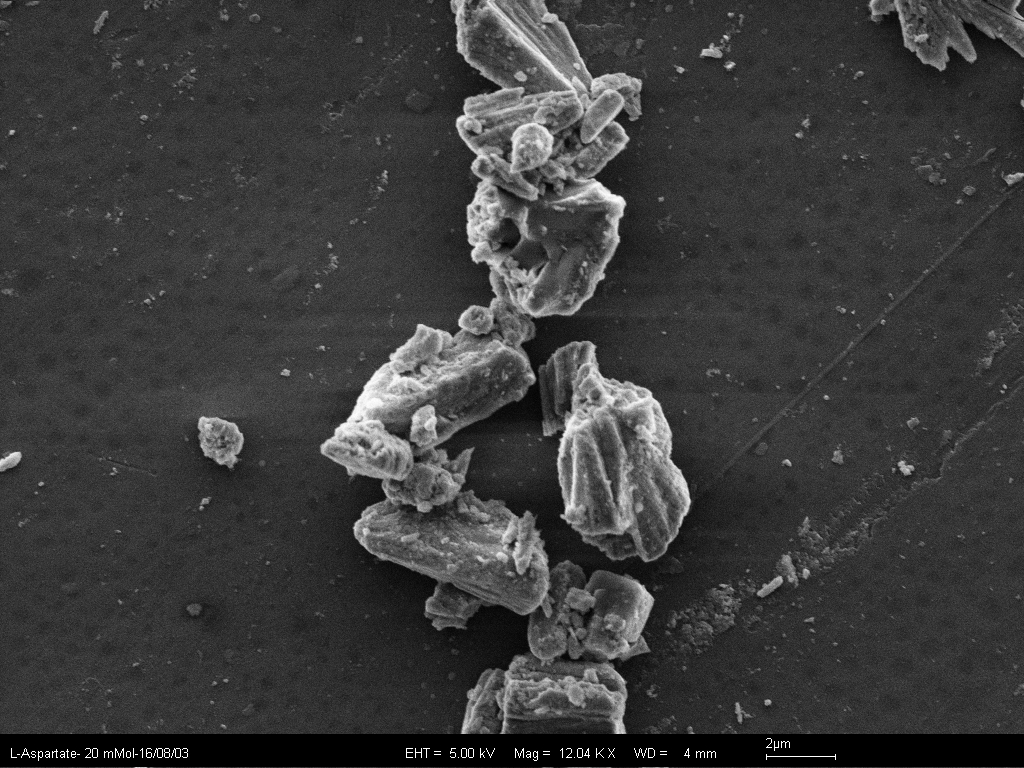 (6)
(6) 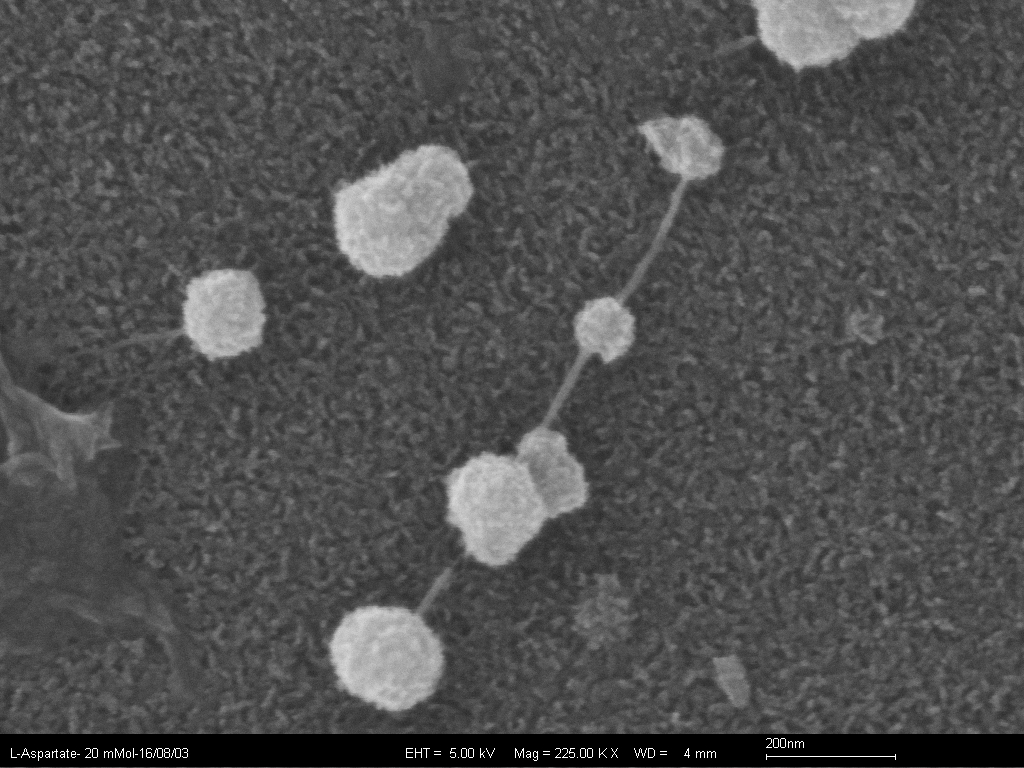 (7)
(7) 